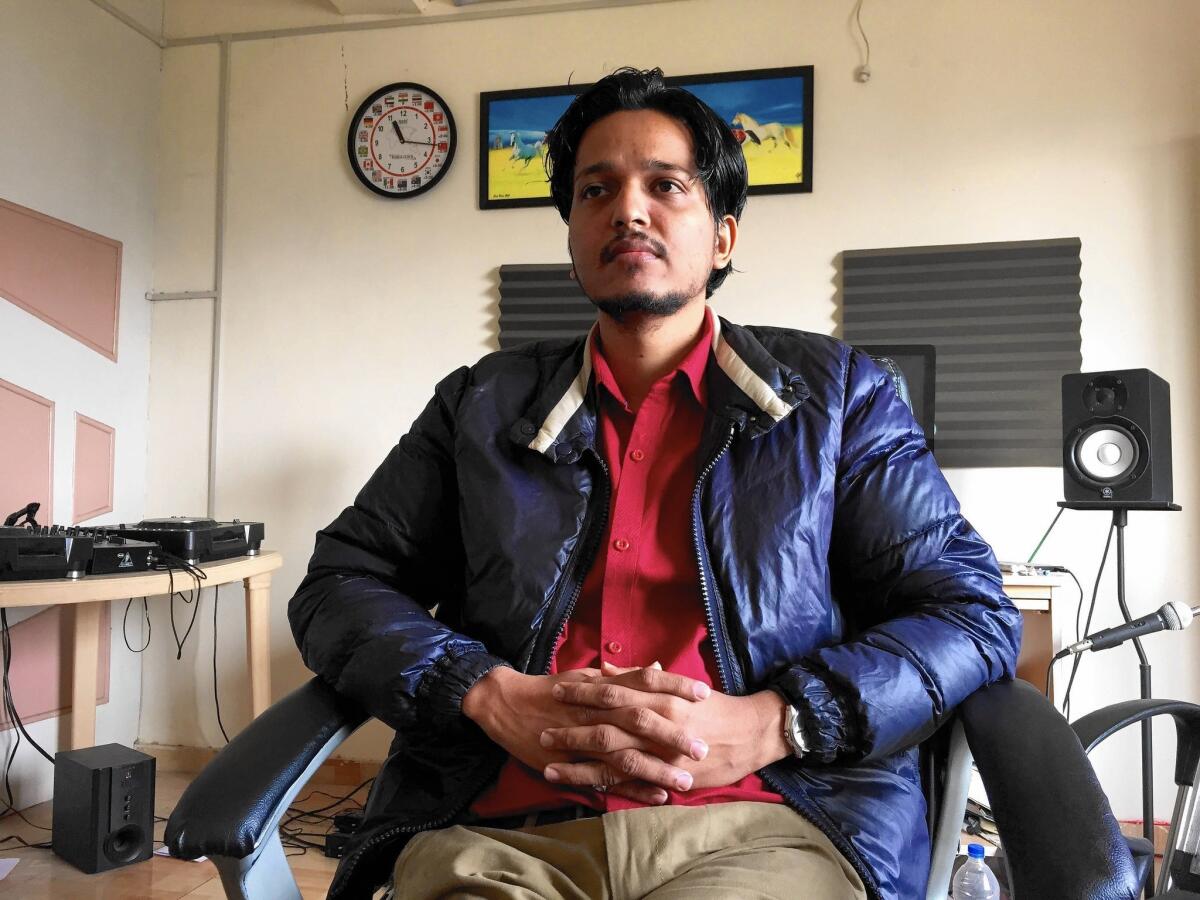Indian film about gay man held up as court debates ‘social evil’

It was a thorny topic for a debut feature film in India: the struggles of a gay man, with a cameo by a real-life gay prince, in a country where same-sex relations are outlawed.
Yet when India’s notoriously picky censor board approved the independent Gujarati-language drama “Meghdhanushya: The Color of Life” for release in 2013, director Kiran Kumar Devmani thought he was in the clear.
Devmani did not expect opposition from a more obscure body: the Gujarat state tax commission, which took the rare step of rejecting his application for a tax exemption on the grounds that homosexuality was “unacceptable” for society and the film could disturb law and order.
The issue made its way to India’s Supreme Court, which said in September that because some Indians regard homosexuality as a “social evil,” it needed more time to study the matter and delayed ruling on whether the film should be granted the tax break.
In big Bollywood films there have been plenty of gay characters, but people poke fun at these characters and then forget them.
— Kiran Kumar Devmani, director
That has in effect shelved Devmani’s project indefinitely. Without the tax benefit, he said, he cannot afford to release the movie in theaters or repay the investors who financed the $40,000 project.
More important, Devmani said, the court’s decision further muzzles open discussion of homosexuality, still an uncomfortable subject in much of India. Two years ago, the Supreme Court reinstated a law criminalizing gay sex between consenting adults, which lawyers say has led to a rise in harassment and prosecutions of homosexuals and other sexual minorities.
Devmani described his film as the first in Gujarat, a socially conservative western state, to revolve around a gay character.
“In big Bollywood films there have been plenty of gay characters, but people poke fun at these characters and then forget them,” said Devmani, a slender and earnest 30-year-old with dark floppy hair.
“Very few films have portrayed them in a positive light. So I thought we could do something positive and send a message to society that if people are gay, it’s not their choice — it’s how God has made them.”
Devmani works out of a strip mall on a busy road in Ahmedabad, Gujarat’s largest city, surrounded by electronics shops and test-prep centers. He studied ayurvedic medicine to fulfill the wishes of his grandfather, who always thought there should be a doctor in the family, but after earning his degree he decided he wanted to make socially conscious movies.
Married with a baby daughter, Devmani said some family members initially questioned why he was making such a film.
“I left behind the chance at a good medical career,” he said, “so I came into film thinking I should do something different and not make the kinds of films everyone else is making.”
He came upon the story of Manvendra Singh Gohil, the descendant of a 7-century-old royal family in Rajpipla, a former princely state in Gujarat. In 2006, Gohil came out as gay, creating a sensation. His mother, the queen, took out newspaper advertisements saying that no one should refer to him as her son.
Gohil’s profile grew internationally after he appeared on Oprah Winfrey’s show in 2007, but his story remained little known in India. Devmani contacted Gohil through the prince’s charitable trust, and he quickly agreed to participate in the film.
“Meghdhanushya” shows three stages in the life of a gay man as he comes to terms with his sexual identity. The story is interspersed with messages from Gohil. At no point in the 138-minute film do two gay characters so much as hold hands. Devmani said his purpose was “not to shock anyone; it was to educate.”
“I knew they if we showed a gay relationship on-screen, some people wouldn’t like it,” he said. “There is not one scene that you can’t see with the whole family.”
The state tax commissioner disagreed. Gujarat levies a 25% tax on box-office receipts for movies but routinely waives it. Of nearly 600 films that have applied for the exemption in 16 years, Devmani’s was the first to be rejected because of its subject matter, according to public records obtained by the news website Scroll.in.
In its 2013 order, the tax commission worried that granting the exemption could give the impression that Gujarat was promoting homosexuality, “which may give wrong signals to the people.”
Devmani petitioned the state high court, which ruled in his favor. The Gujarat government took the matter to the Supreme Court, which could take three years to make a decision.
“It shows the prejudice that exists among various people, who would still like to put homosexuality into a corner along with antisocial activity,” said Anand Grover, a lawyer representing Devmani.
There is certainly a diversity of opinion in this country of 1.2 billion people. In 2012, “I Am,” which depicted a gay couple who kissed on-screen, won the prestigious National Film Award for best Hindi film. And there is growing pressure on the Supreme Court to reverse its decision criminalizing gay sex, which some officials worry has made India appear backward.
See more of our top stories on Facebook >>
“Jurisprudence the world over is evolving,” Arun Jaitley, the influential finance minister, said recently. “I think the judgment was not correct, and probably, at some stage, they may have to reconsider.”
Devmani is busy wrapping up production on two more films — one about a developmentally challenged child, the other about a family torn by incest — but hopes the Supreme Court revisits his case soon.
“It was my dream that my first film gets released and the message reaches the people,” he said. “So the sooner the decision comes, the better.”
ALSO
O.C jail escapee surrenders with plea to a friend: Call police
Are we getting closer to understanding where the moon actually came from?
Waiting for rain? Here’s what’s keeping the brunt of El Niño away
More to Read
Sign up for Essential California
The most important California stories and recommendations in your inbox every morning.
You may occasionally receive promotional content from the Los Angeles Times.











